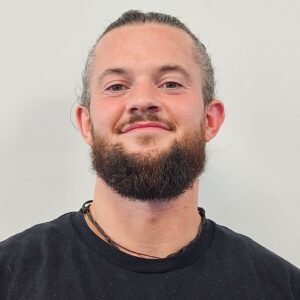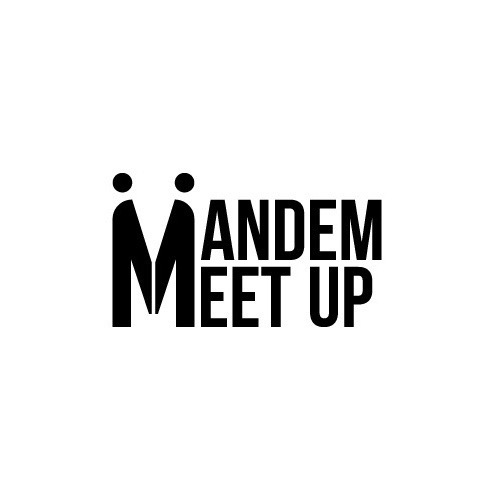Meet the Mandem
In 2023, Mandem Meetup provided a stall and shared a video at an African and Caribbean Men’s Health Event which was coordinated by the Withington and Old Moat Health Development Coordinator (HDC).
After watching the video, attendees at the event started to talk about the importance of men knowing that it’s OK to talk about their mental health and how more of these kinds of conversations need to happen in the neighbourhood. Following this, the MLCO HDC for Withington and Old Moat worked with Mandem Meetup to look at how they could expand their reach and connect with more men from the neighbourhood and surrounding areas.
So far the HDC has worked with GP Surgeries in the neighbourhood to send texts out and publicise Mandem Meetup on their website also supporing them to connect with Bloc 2 Bloc who are a music production company from Manchester and collaboratively they have held 3 community outreach events using live music as a medium to connect with men and through this they have reached over 400 men in our community.
We spoke to Jamie Dennis, the CEO of Mandem Meetup, who has been doing amazing work leading the charge in creating safe spaces where men can openly talk about their mental health and connect with others. With a real passion for breaking down stigmas and offering support, Jamie has helped Mandem Meetup grow into an important community resource.

What inspired you to set up the Mandem Meetup Charity, and what initial challenges did you face when talking about men’s mental health?
Through my own lived experiences of domestic violence and suicide within my family, I understand how difficult it can be to open up and talk about what’s going on in your head in a place where you feel safe. A turning point in my life was when somebody did give me a chance to talk about how I was feeling without any judgement and this inspired me to want to offer similar opportunities for other men who are going through something.
One of the biggest challenges when talking about mens mental health is getting people to feel confident opening up as men talking about their feelings isn’t something that we see normalised enough in society, we try and solve this by telling men that they can come as they are and they are welcome. If people aren’t ready to talk yet, that’s fine, there’s no pressure.
Does Mandem Meetup identify and reach men who might be reluctant to seek help with their mental health due to stigma or societal expectations?
We do outreach, such as community events, social media, connecting with music promoters to reach men who go to music events. All our activities are also free, to take down that barrier to people getting involved.
What specific preventative health and wellbeing activities does Mandem Meetup promote, and how do these activities contribute to mental health improvement?
We have 5 pillars to balancing the Mandem:
- Mandem Outdoors: which is bushcraft, wild camping, hikes and walks.
- Mandem Talk: which involves talking circles where people can share without judgment or expectation.
- Mandem Train: workshops to train the body and the mind such as boxing & football.
- Mandem Learn: opportunities to pick up skills to improve life and mental health such as poetry, photography, chess.
- Mandem Help: we do weekly outreach giving clothes to people in need in Manchester City Centre.
Community spirit is a core element of your work. Can you provide examples of how Mandem Meetup fosters a sense of belonging and support for its members?
The Mandem Meetup allows men to be themselves and feel valid as a person without pressure or expectation. Members connect both in our social activities and outside of the Mandem, with some members moving closer to where we run activities to spend more time with the Mandem. We also provide a pathway for service users to become group/activity facilitators.
In your experience, what are the most persistent stigmas surrounding men’s mental health, and how is your organisation working to dismantle them?
The biggest stigmas we see is the misconception that showing emotion or crying is weak, when in fact feeling able to stand confident with your own vulnerabilities is what makes us strong and helps us to encourage others to do the same. Also we are often told that men don’t want to talk, when we don’t feel this is the case, they just haven’t found a safe and inclusive environment to open up yet. We hold regular talking circles to provide safe spaces for men to come together and open up.
How does Mandem Meetup assess the impact of its programs on the mental health and overall wellbeing of the participants? Do you have any success stories that stand out?
We have one guy who came to us with social anxiety, was drinking daily and was heavily overweight. Since joining the mandem he has stopped drinking all together, become much more social – even attending activities outside of the mandem groups alongside mandem members and has lost 22kgs in weight. He is much more content within him self and a strong advocate for the Mandem.
How important are collaborations with other organisations, health professionals, or community groups to your mission, and can you share any notable partnerships?
Collaboration is essential to our work, ‘When I Becomes WE even Illness Becomes Wellness’.
We recently did a Mandem Meetup Summer Cookout with support from Manchester Local Care Organisations Health Development Coordinator ‘Yasmin’ which was funded through BRSK, Mcsv Kindness Fund and ASDA. We worked closely with Manchester City Council, Manchester Active, Be Well, Health Activators, Bloc to Bloc music promoters and ARMR C.I.C to host a community event on Alexadra park. Men where welcome to join in and bring their families, providing an inclusive space for men to be active dads, enjoy a sober social opportunity and find out about support available for them in the community. 300 people attended and even the sun came out for us. Due to its success we will be repeating this next year.
What are your short-term and long-term goals for Mandem Meetup, particularly in terms of expanding your reach and impact and what help do you need to get there?
Short term – to expand to more neighbourhoods in Manchester and build on activities based around what men want to get involved with.
Long term – To become more self-sufficient as a charity to help sustain ourselves, but ultimately our long term goal is to live in a world where men don’t take their own lives.
What challenges has Mandem Meetup faced, especially in light of recent global events, and how have you adapted your strategies to continue supporting men’s mental health?
We as the Mandem Meetup are a charity but also a brotherhood, all our members are part of the Mandem and we use ourselves as a network of knowledge and skills to support one another through the different global and hyperlocal challenges we face.
Our biggest challenge is accessing funding, we keep our activities free to reduce financial barriers for men getting involved and with this comes the need for fundraising and investment. In November we are doing a sponsored 24 hour sleepout to raise funds for the charity, but if any funders are reading this and want to invest, get in touch!
As a leader in this space, what personal experiences or insights have shaped your approach to mental health advocacy, and how do you stay motivated in your mission?
I spoke before about my personal experiences and I stay motivated by seeing the impact that the Mandem Meetup has on men involved in our activities day to day. The confidence people get, the friendships they make, the support networks they build.
If the mandem was a meal what would it be and why?
An international buffet, there’s room at the table for everyone, plenty to go around and something to suit everyones taste.
If you could speak to every man in Manchester who is going through something difficult right now, what would you say?
Hold tight yourself, keep going, I know its not easy but I know it will get better.

